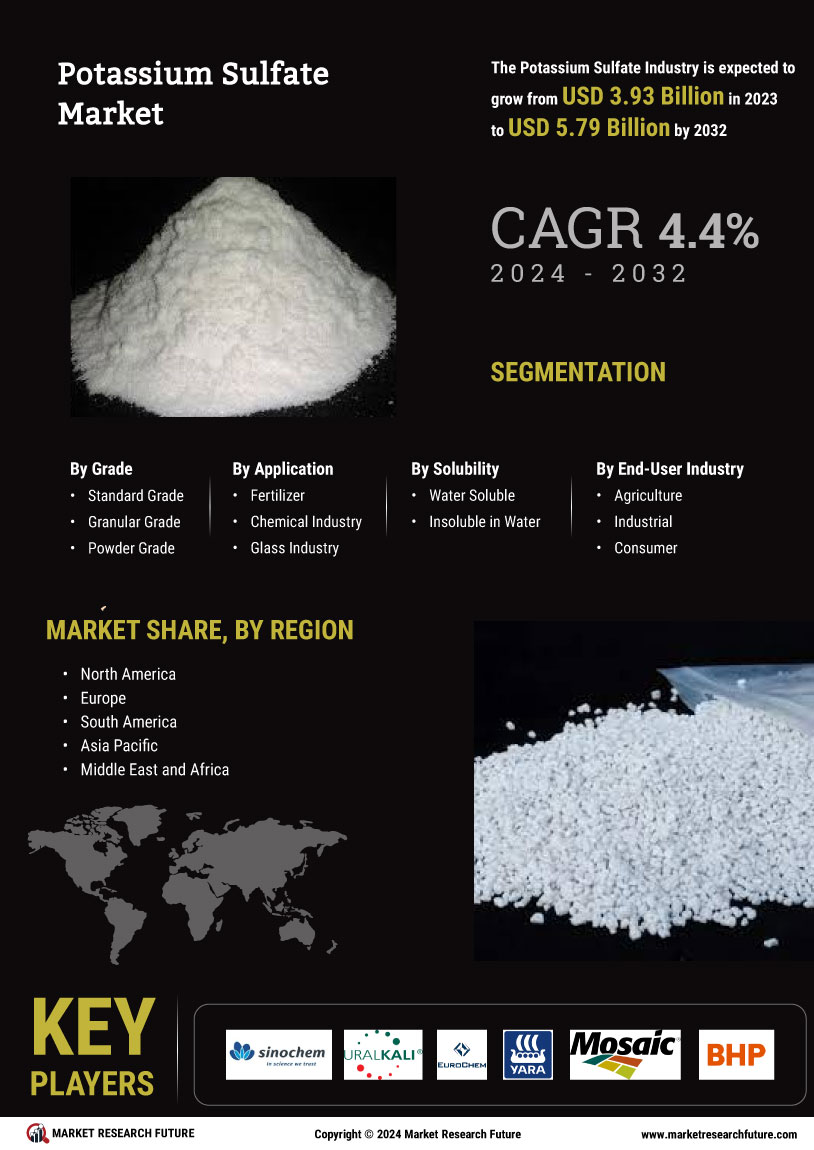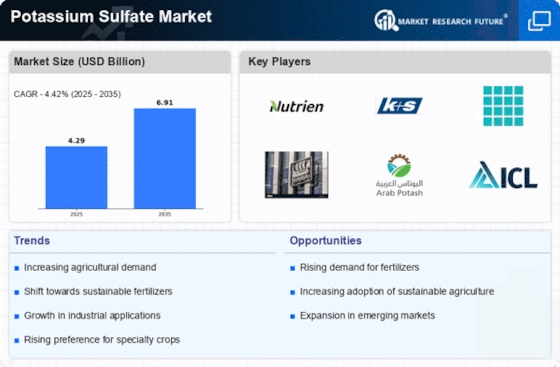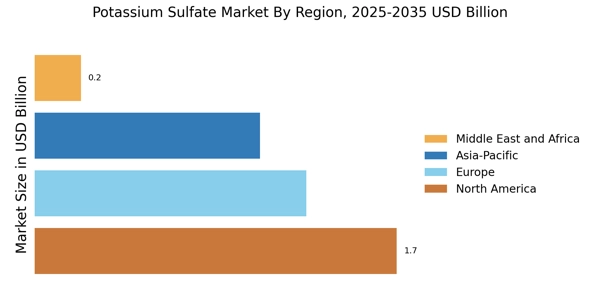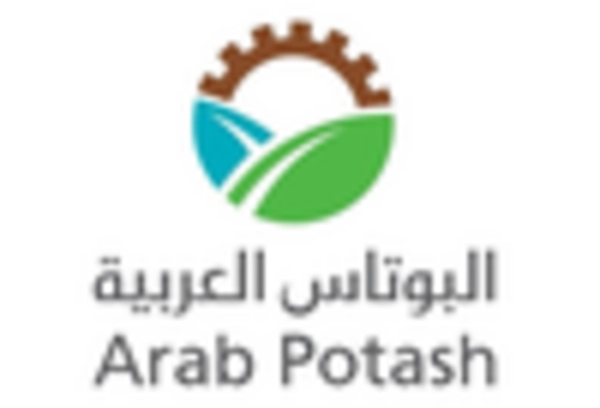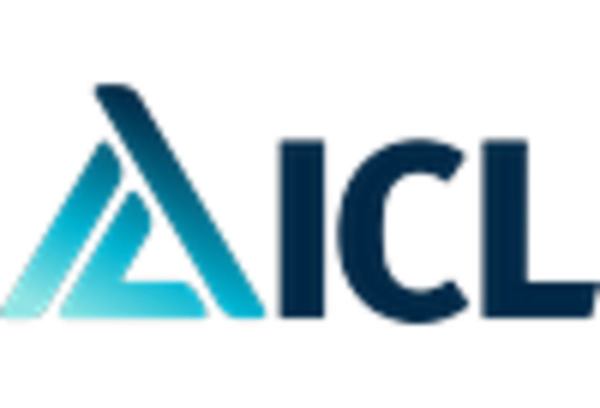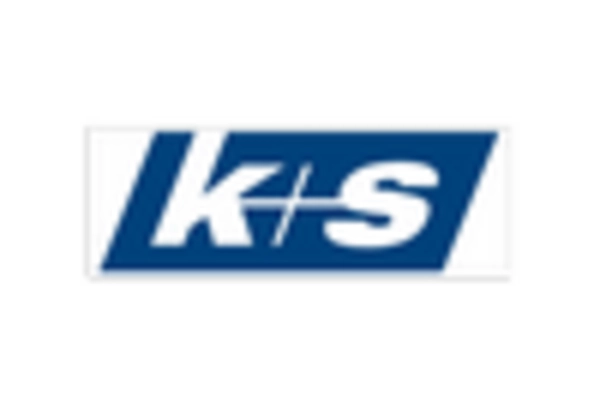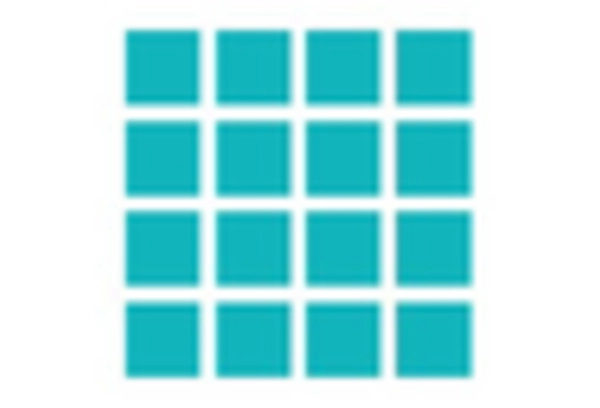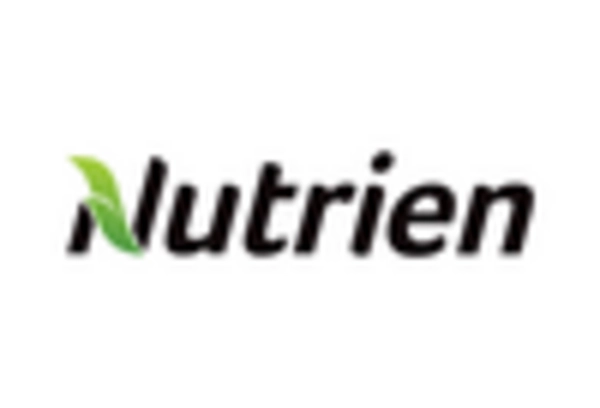Shift Towards Organic Farming
The Potassium Sulfate Market is significantly influenced by the shift towards organic farming practices. As consumers become more health-conscious and environmentally aware, the demand for organic produce has escalated. Potassium sulfate, being a natural mineral, aligns well with organic farming standards, making it a preferred choice among organic farmers. Recent data indicates that the organic fertilizer market is projected to grow at a compound annual growth rate of 10% over the next five years. This shift not only supports sustainable agricultural practices but also enhances the market for potassium sulfate, as it is increasingly utilized in organic farming systems.
Increasing Agricultural Productivity
The Potassium Sulfate Market is experiencing a surge in demand due to the increasing need for agricultural productivity. As global populations rise, the pressure on food production intensifies, leading farmers to seek effective fertilizers. Potassium sulfate, known for its high solubility and nutrient content, plays a crucial role in enhancing crop yields. In recent years, the market has seen a notable increase, with estimates suggesting a growth rate of approximately 4% annually. This trend indicates that farmers are increasingly recognizing the benefits of potassium sulfate in improving soil health and crop resilience, thereby driving the market forward.
Rising Demand for High-Quality Crops
The Potassium Sulfate Market is witnessing a rising demand for high-quality crops, which is driving the need for specialized fertilizers. Farmers are increasingly focused on producing crops that meet stringent quality standards, particularly in premium markets. Potassium sulfate is recognized for its ability to enhance the quality of fruits and vegetables, improving attributes such as size, color, and taste. Market analysis suggests that the demand for high-quality agricultural products is expected to grow by 6% annually, further propelling the use of potassium sulfate as a key ingredient in achieving these quality benchmarks. This trend underscores the importance of potassium sulfate in modern agriculture.
Government Initiatives Supporting Fertilizer Use
The Potassium Sulfate Market is positively impacted by various government initiatives aimed at promoting fertilizer use. Many governments are implementing policies to enhance agricultural productivity and food security, which often include subsidies and support for fertilizer application. These initiatives encourage farmers to adopt effective fertilizers like potassium sulfate, which is known for its efficiency in nutrient delivery. Recent reports indicate that government spending on agricultural subsidies has increased by 8% in the last year, reflecting a commitment to improving farming practices. Such support is likely to bolster the potassium sulfate market, as it becomes more accessible to farmers seeking to optimize their crop production.
Technological Advancements in Fertilizer Production
The Potassium Sulfate Market is benefiting from technological advancements in fertilizer production. Innovations in manufacturing processes have led to more efficient and cost-effective production methods for potassium sulfate. These advancements not only reduce production costs but also improve the quality and availability of the product. For instance, the introduction of new extraction techniques has increased the yield of potassium sulfate from natural sources. As a result, the market is expected to expand, with projections indicating a potential increase in production capacity by 15% over the next few years. This technological evolution is likely to enhance the competitiveness of potassium sulfate in the fertilizer market.
